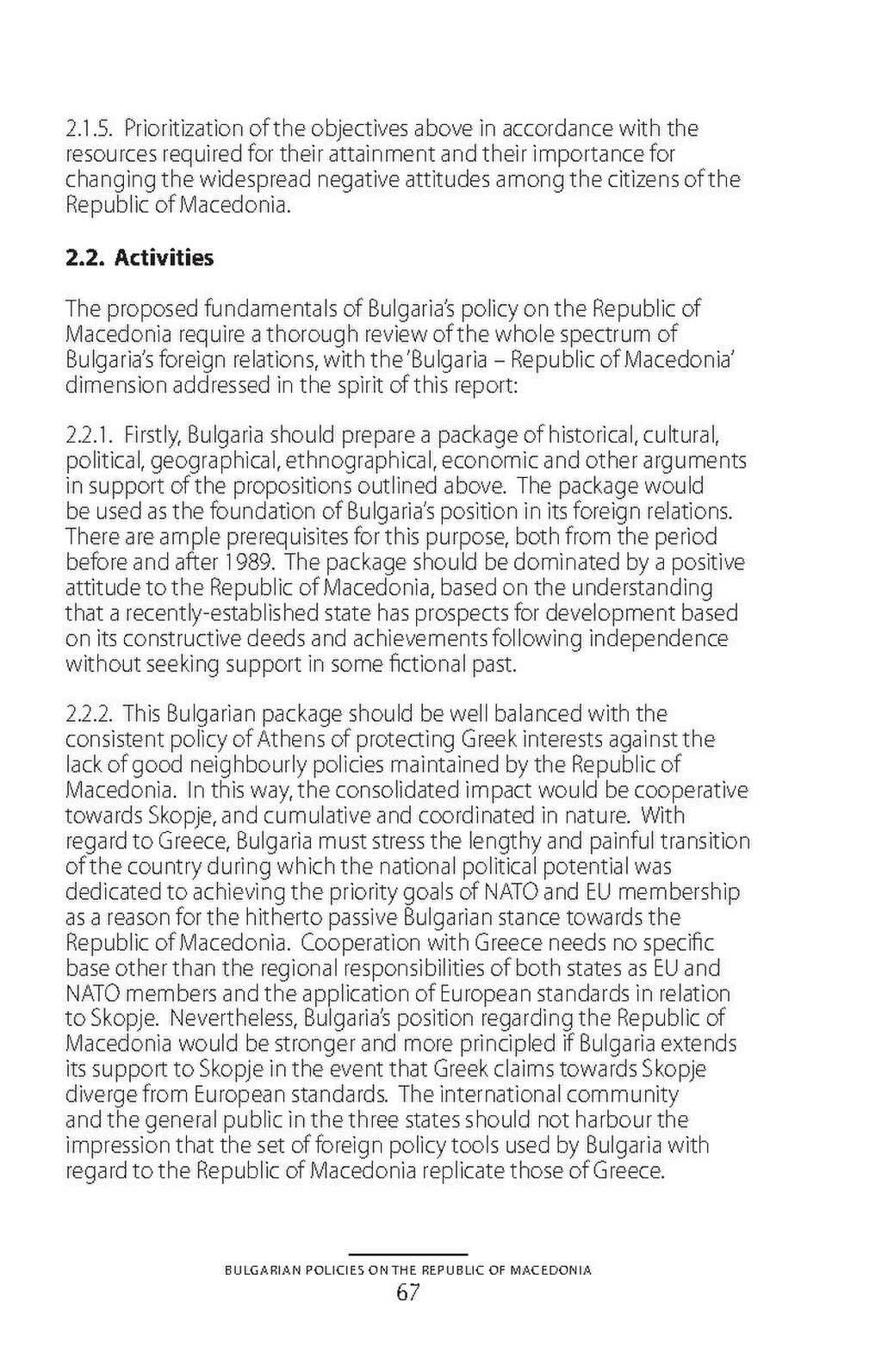2.1.5. Prioritization of the objectives above in accordance with the resources required for their attainment and their importance for changing the widespread negative attitudes among the citizens of the Republic of Macedonia.
2.2. Activities
The proposed fundamentals of Bulgaria’s policy on the Republic of Macedonia require a thorough review of the whole spectrum of Bulgaria’s foreign relations, with the ‘Bulgaria – Republic of Macedonia’ dimension addressed in the spirit of this report:
2.2.1. Firstly, Bulgaria should prepare a package of historical, cultural, political, geographical, ethnographical, economic and other arguments in support of the propositions outlined above. The package would be used as the foundation of Bulgaria’s position in its foreign relations. There are ample prerequisites for this purpose, both from the period before and after 1989. The package should be dominated by a positive attitude to the Republic of Macedonia, based on the understanding that a recently-established state has prospects for development based on its constructive deeds and achievements following independence without seeking support in some fictional past.
2.2.2. This Bulgarian package should be well balanced with the consistent policy of Athens of protecting Greek interests against the lack of good neighbourly policies maintained by the Republic of Macedonia. In this way, the consolidated impact would be cooperative towards Skopje, and cumulative and coordinated in nature. With regard to Greece, Bulgaria must stress the lengthy and painful transition of the country during which the national political potential was dedicated to achieving the priority goals of NATO and EU membership as a reason for the hitherto passive Bulgarian stance towards the Republic of Macedonia. Cooperation with Greece needs no specific base other than the regional responsibilities of both states as EU and NATO members and the application of European standards in relation to Skopje. Nevertheless, Bulgaria’s position regarding the Republic of Macedonia would be stronger and more principled if Bulgaria extends its support to Skopje in the event that Greek claims towards Skopje diverge from European standards. The international community and the general public in the three states should not harbour the impression that the set of foreign policy tools used by Bulgaria with regard to the Republic of Macedonia replicate those of Greece.
